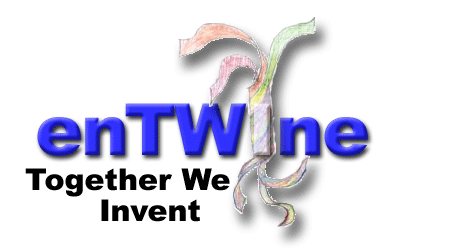
|
enTWIne Magazine
|
Project Overview
Principal Investigators:
Gerhard Fischer, Ernesto Arias, Hal Eden, and Michael Eisenberg
Award Agency:
National Science Foundation
Directorate of Education and Human Resources
Division of Research, Evaluation, and Communication
Research on Learning and Education (ROLE) Program
Award#: 0106976 |
Project Duration:
August 1, 2001 to July 31, 2004
Project Description:
Whereas much of teaching in our educational culture presumes an omniscient teacher transmitting knowledge to unknowing learners, most learning that takes place outside of the classroom is based on breakdowns in the context of real-world activities leading to reflection and learning. The traditional approach has some validity for situations in which “basic knowledge” needs to be communicated, but it is not well suited to the highly situated nature of lifelong learning and design problem solving. Although creative individuals are often thought of as working in isolation, the role of interaction and collaboration with other individuals is critical. Much of our intelligence and creativity results from exploiting the “symmetry of ignorance” (between different communities) as a source of power. Social creativity emphasizes that the heart of intelligent human performance is not the individual human mind but groups of minds in interaction with each other and in interaction with tools and artifacts. Meta-design characterizes objectives, techniques, and processes for creating new media and environments that allow users to act as designers and contribute to and benefit from the creativity of the group.
The three-year project will:
1) develop a theoretical framework and systems to support social creativity as a specific form of lifelong learning;
2) investigate principles of meta-design and how they support social creativity in the context of learning and working;
3) work with specific communities to demonstrate the scalability and sustainability of our approach;
4) focus on specific domains such as the collaborative design of course information environments;
5) explore the role of social creativity and meta-design in practice by changing classroom environments and undergraduate education; and
6) assess how our theoretical attributes of lifelong learning, social creativity, and meta-design map onto practice and evaluate the strengths and weaknesses of our approach
Welcome to the enTWIne Project Living Organizational Memory
The enTWIne project
aims to study Social Creativity and Meta-Design in Lifelong Learning Communities
Information about the project can be found in the enTWIne magazine
The Living Organizational Memory
(this site) is the information space of the enTWIne project. It is living in the sense that it grows and evolves as it is used by a community of users to do work. The goal is that over time the information space grows and improves as a shared resource for creativity and understanding.
More information about the livingOM project.
|
Welcome to the enTWIne magazine!
Click on the enTWIne logo at the top right of each magazine page to return here.
The enTWIne project aims to investigate Social Creativity and Meta-Design in Lifelong Learning Communities. Our motto is Together We Invent. For more information, see the Project Overview.
What’s New
June 5-9 – We hosted an International Symposium on Social Creativity in Breckenridge Colorado.
SubProjects
There are several sub-projects within enTWIne, including:
About this site
The enTWIne magazine portion of the enTWIne site chronicles our research activities. Underneath the magazine is a large, dynamic, and growing living organizational memory in which we manage project information. Pages from this part of the site have a light blue background.
Much of the information presented in the magazine is automatically linked to information in the organizational memory. This information is displayed in the small frame at the bottom of the magazine pages.
Please feel free to use the MessageBoard to add comments about our work or about this website!
